Driving trips are fun and also they are the easiest way to get out of the city and relax somewhere close to nature! No matter whether you are going alone or with your family or with friends, traveling in a car is always a romantic and adventurous way of spending your weekend or vacation!
However, many drivers who had to drive really far often complain of so-called driving fatigue. This is the state of tiredness that can appear unexpectedly while you are still at the steering wheel. And in the worst cases, drivers can even fall asleep while driving!
Of course, in this case, they become potential car accident hazards.
This is why so many drivers, even quite experienced ones, tend to wonder how to drive long distances without getting tired.
And today, we will present you an article that will explain why you might have fatigue while driving, and also, what could be the aftermath of this dangerous state.
In addition, we will share a few handy tips with you on what to do in order to avoid getting tired while you are still driving on the road.
Tips For Driving Long Distances Without Getting Tired
If you are a driver and you have ever had to drive a car for a really long period of time, you know for sure that you can suddenly start getting tired and feel somewhat dizzy.
Those drivers who work regularly and drive long distances frequently enough (for instance, overnight), know very well that it is possible to suddenly start falling asleep while you are still holding your steering wheel!
And road trip fatigue is actually a big safety concern! According to recent studies, one in six of all fatal car accidents involved a drowsy driver.
This is why those who drive long distances often keep on looking for solutions of how to stop or even better – how to prevent road fatigue.
Well, the majority of you might think that a good amount of coffee or loud music might help, but in fact, those are not very helpful, as practice shows.
Besides, sooner or later, coffee will stop being that effective, which means that you will be back into the comfortable “embrace” of sleep!
So instead, we suggest you a few more alternative solutions that are all checked and way more efficient! read them carefully and keep them in mind for the future.
We can assure you: next time you are on a long road trip in a car, any of these life hacks will help you to stay awake and active.
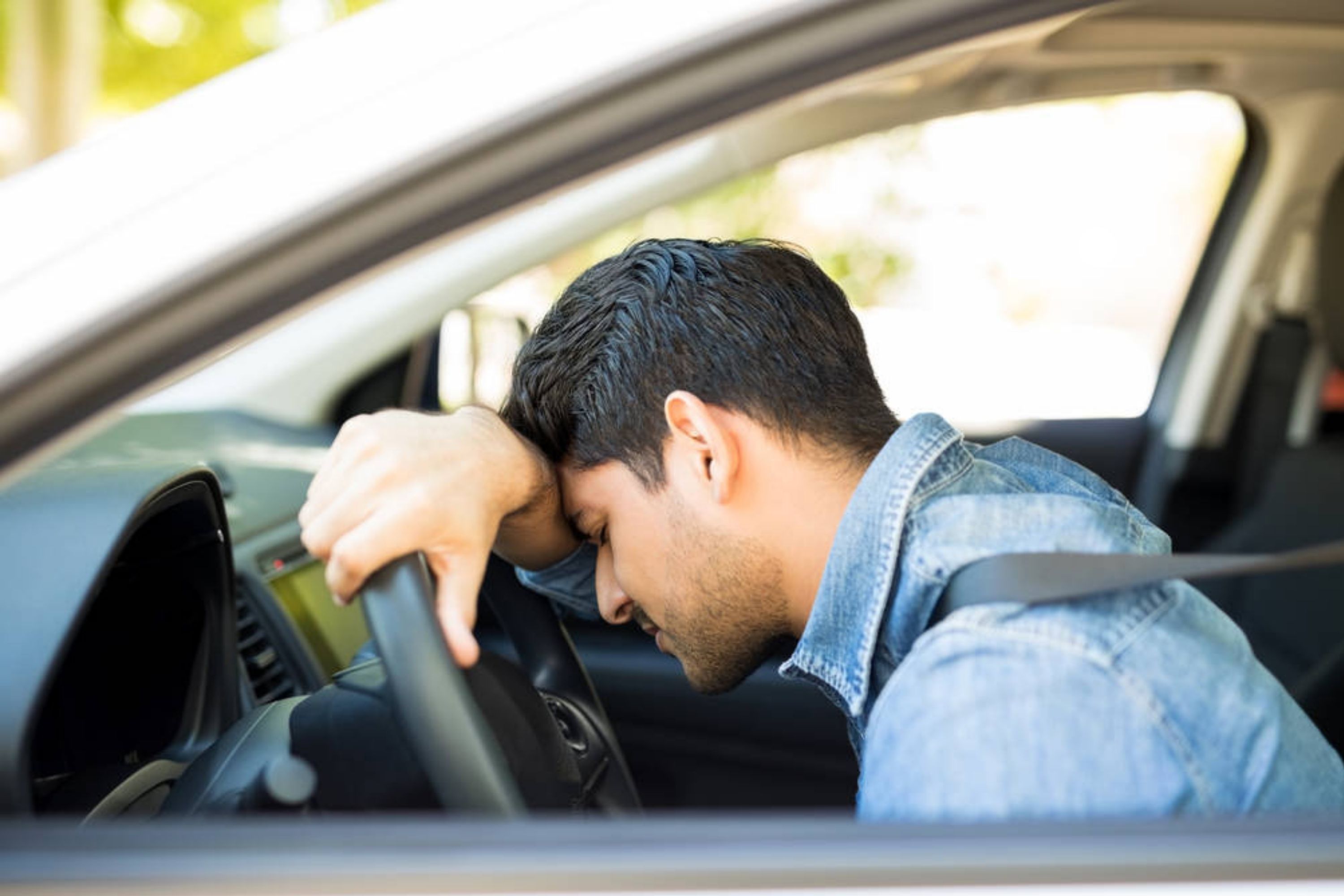
Listen To a Podcast Or eBook
To avoid monotony and/or put your brain back at work while you are still on the road driving, a nice way to distract yourself while holding a steering wheel on the road is to listen to a podcast, an eBook and of course to some music.
With the variety of topics that are nowadays offered by podcast apps, knowledge is at the tip of your finger. Maybe you need to perfect your foreign languages skills? And what about this interesting podcast on how to manage a successful career with parenthood?
It is also always fun to listen to your favorite tune and rock out to the sound of a classic album! Finally, the eBook format allows you to get a healthy amount of lectures without keeping your eyes off the road!
But of course, you must always stay alert and keep your eyes on the road! Even your favorite music track is not worth damaging your car in a road accident because you were too busy while listening to it!

Related: The Benefits Of Creatine Supplements In Your Health?
Take a Break When Needed
To avoid fatigue when driving, you should stop frequently enough in order to give yourself enough rest. This is classic advice that always works! How often should you stop when driving long distances, you may wonder?
Sure, you may have a schedule to follow but it is better to arrive late and safe than not at all.
Sometimes, a quick ten to fifteen minutes nap is more than enough to let your nervous system and your body reset. Now you’re ready to hit the road again, all in safety!
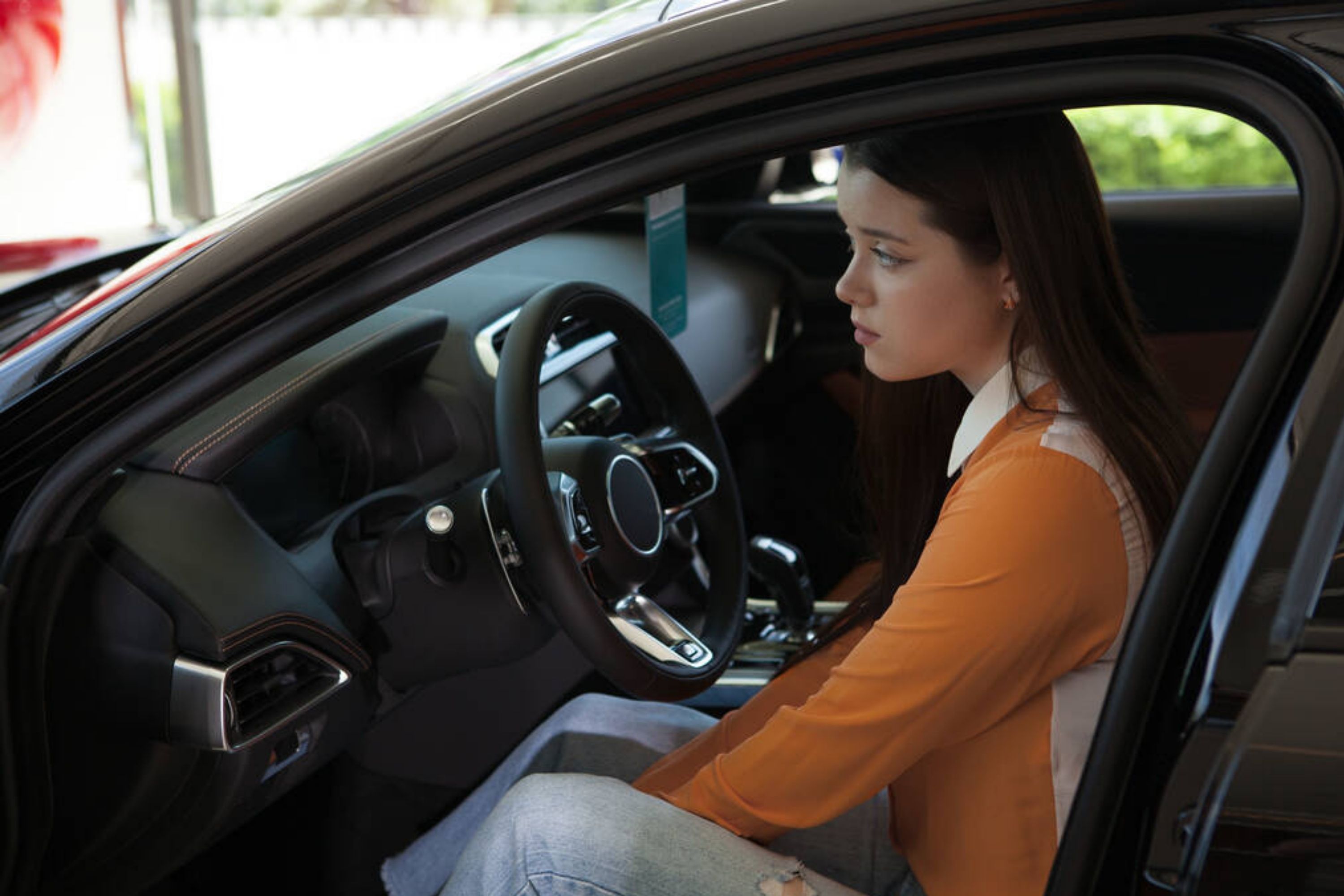
Related: How Long Does It Take to Walk a Mile?
Get Yourself Ready For the Upcoming Car Trip!
This is basically one of the best ways to prevent fatigue on long drives!
Make sure you prepare yourself and everything you need for the trip in advance, and make sure you don’t run around trying to get everything ready for the trip the day you are hitting the road!
Excess excitement and nerves will only make you get tired faster – most likely, when you are at the middle of your journey.
However, if you get everything you need ready in advance, it will prevent stressing out about things that should not be that stressful like packing or figuring out your itinerary.
Try to do as much as possible before the departure day when you must be at the wheel for countless hours and you will find the drive a lot more peaceful.
Wear an Anti-Drowsy Earpiece For Drivers to Prevent You From Falling Asleep At the Wheel
You can help prevent driving fatigue by wearing what is called an earpiece alarm for drivers. It is a comfortable and efficient way to enhance safe driving.
The 90-dB alarm will ring as soon as your head nods which is a typical sign of drowsiness. Now you are fully prepared!

Consider Doing Hand Free Phone Calls!
Hearing a familiar voice can be very comforting and help you pass the time, without being distracted in a dangerous manner.
Check in on a friend or on family and put all this available time on your hands to good use, instead of just getting frustrated at the long commute.
See? You are already there and up did not see time pass!

Avoid Starting Your Trip With a Sleep Deficit!
The best way to avoid any trouble is to do your best to prevent it.
This is why the best rule of thumb that all experienced drivers try to follow all the time is to get a full night’s sleep before heading out on your road trip.
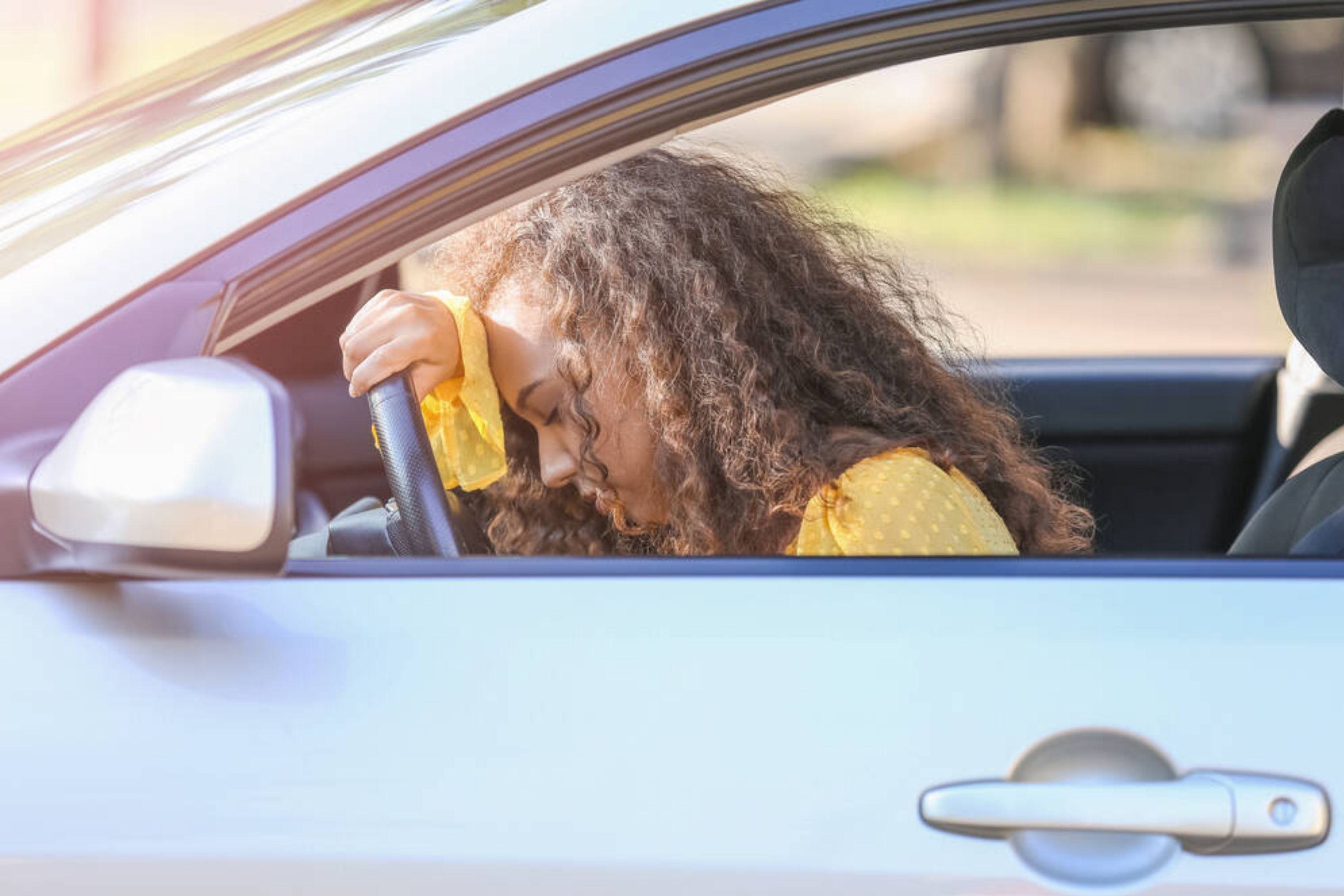
Try to Drive During Your Normal Waking Hours
If you know that you are going to drive long distances, you should consider driving during your normal waking time frame. Like this, even if you are feeling fatigued while driving, this is more likely to happen when your body is used to falling asleep.
Let’s say, if you usually sleep at night, you will start getting tired closer to the evening. That means, you should schedule your driving routine so that you are at the steering wheel from the morning till dusk.
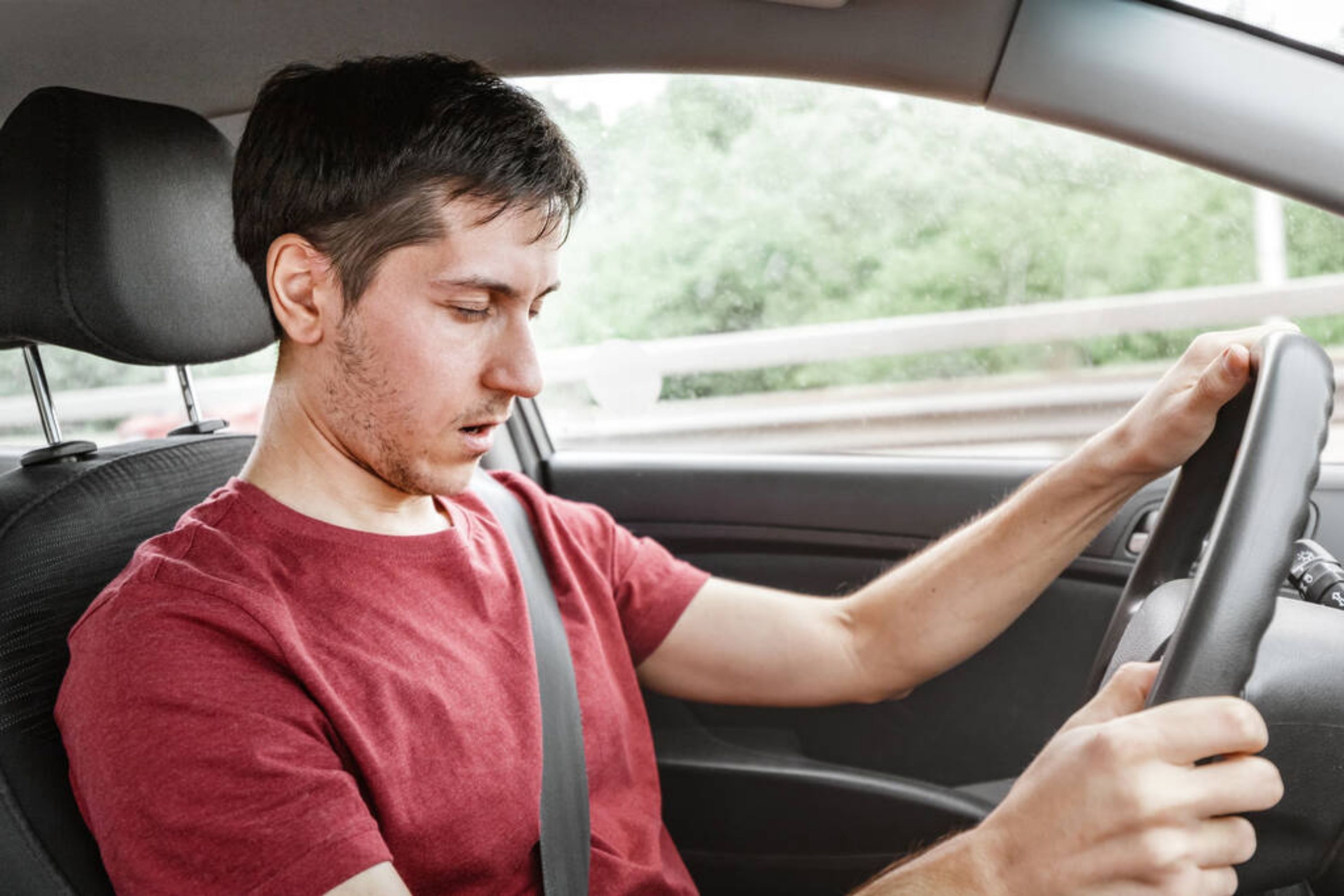
Eat And Drink Properly
One of the reasons why driving fatigue appears is that a driver does not feed properly. You should eat and drink throughout your drive as you would any other day! Do not eat or drink less as a way to try to avoid bathroom breaks.
See, when you are thirsty and hungry, your concentration will be split between the road and your appetite. Pack some snacks and water bottles to enjoy while at rest stops.
Remember to not eat while driving, as this behavior can also cause a car accident.

Limit Your Driving Time
Unless you are on an extremely tight schedule, try to limit your driving time as much as you can. Most of you probably have a general sense of how long you can drive before you start feeling tired or sleepy during a long-distance drive.
You should not test your limits for your road trip, remember that! It is generally accepted that eight hours of driving in a single day is the top limit anyone can drive before becoming dangerously tired.
Eye strain after paying close attention to the road for eight hours can also become unbearable and make you want to close your eyes.
Plan your route to stop every eight hours more or less when driving long distance, which will take you approximately five hundred miles a day when factoring breaks.

Always Have an Awake Passenger With You!
When you are driving and become fatigued, you should step aside and let your companion take the steering wheel. This is why many long-distance drivers work in pairs so that one can take a nap while another one is driving.
So in case there is another adult with a driver’s license coming along for your road trip, talk to them before you depart. They can serve as a backup driver in case you get too tired to continue but have not reached your destination.
They will probably be thankful for the chance to drive after watching the horizon for hours. You can even switch between drivers throughout the day, such as at every rest stop.

Simply Stop And Sleep
This is the best way to get rid of road fatigue! If you feel that you are getting drowsy, don’t push your limits! Instead of trying to be a superman, just stop your car in a safe place and take a nap.
It will give you more good than trying to keep your eyes wide open while being half-asleep and being a living driving hazard for others on the road!
So, these are the best and the most common tips for getting rid of and preventing driving tiredness. If you follow all of them (preferably), you will be able to drive safely and quickly to wherever you need without feeling exhausted.
Be careful and stay reasonable! Road is not a place for heroism or playing jokes! Better sleep for extra two hours than stay awake but hell sleepy while at the steering wheel.
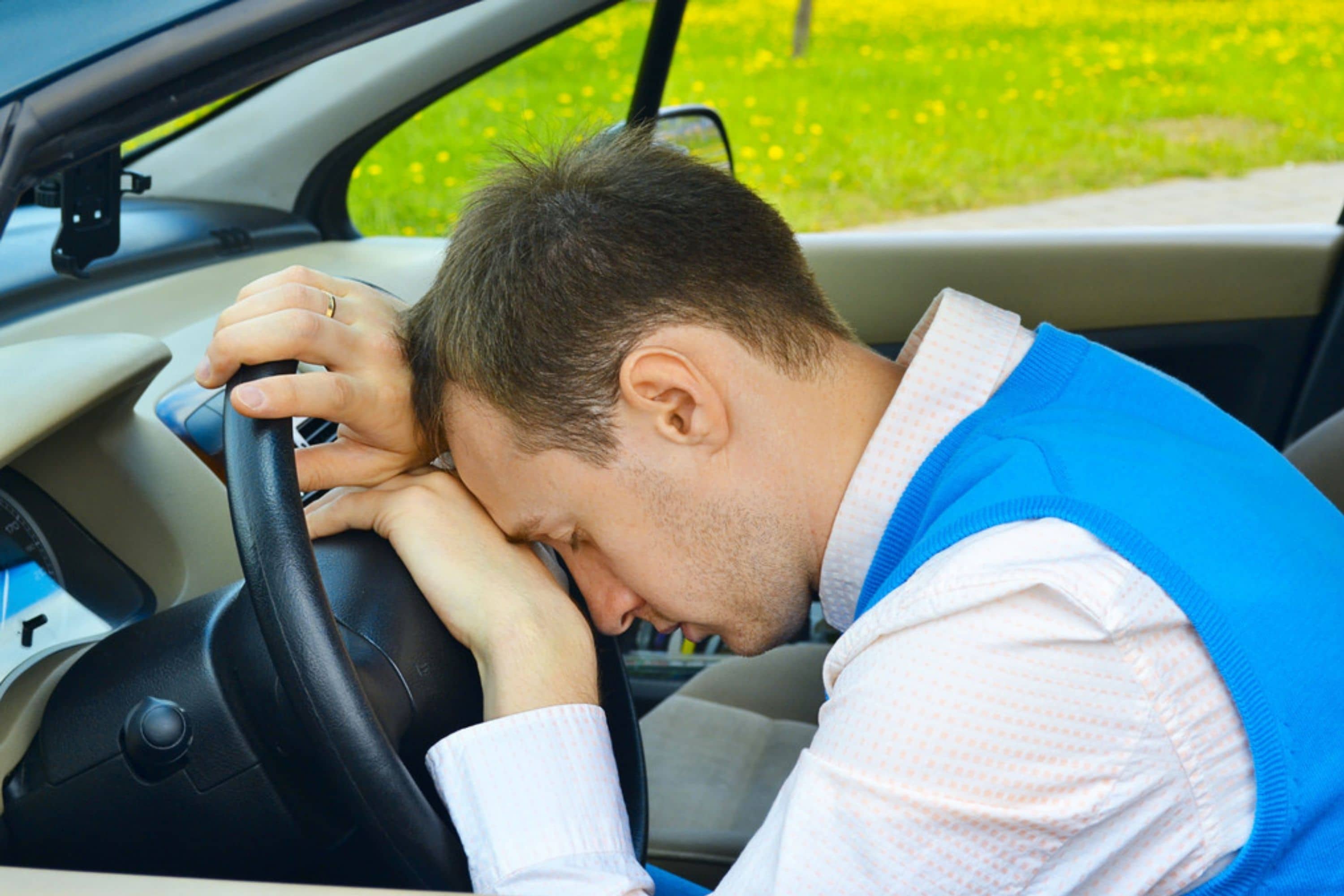
Make Sure You Are Safe While On the Road!
If you are a lover of long car travels, it is important that you make sure you are safe during the trip, especially if you are traveling by car.
his advice is essential even when you are driving through the United States. However, it becomes mandatory should you decide to drive far away – for example, to Europe.
Europe is mostly safe, however, some parts of it (for example, Eastern Europe) still have not quite a good reputation. Generally, the vast majority of the countries where driving is most dangerous are located in eastern or southeastern Europe.
However, some Western European nations, such as Belgium, Portugal, and Austria, are also on the “worst-ranked” list! By saying “worst-ranked” we mean the data based on fatalities among drivers as well as bikers and pedestrians.
So if you decide to travel to Sarajevo or another East European city, and you want to do it by car, you need to get ready.
- Read the rules before you depart. In some countries, there might be different speed limits, etc.
- Plan the safest route for yourself.
- Check criminal records for the country you are headed. Sometimes, certain countries are less safe for drivers, especially at night.
- Make sure you will have a safe place to stay and sleep in during the trip should you get tired.
- Have all the emergency phone numbers with you in advance.
- Find out how to call the police in the country you’re going to.
These simple rules will help you to stay safe and sound even if you decide to drive around the world.
Why Do Road Trips Make You Tired?
Long distance driving is very tiresome even though it might not seem like one. You have to spend several hours non-stop sitting in a seat that is actually not meant for keeping your body in such a long-lasting upright position. As a result, your body gets tired which results in overall tiredness.
In addition, you have to always stay focused on the road. Constant attention like this is very tiring for people. As a result, you start feeling drowsy faster than you would when sitting at home on a comfy sofa with a book!
These are actually the two common reasons why driving fatigue appears. There is, however, another one which is the lack of movement. If you have to drive non-stop for several hours, your body will get tired faster. Simply because it does not get enough exercise to keep it active!
This is why experienced drivers often suggest to do short breaks, stop, and exercise a bit if time allows you to do that.
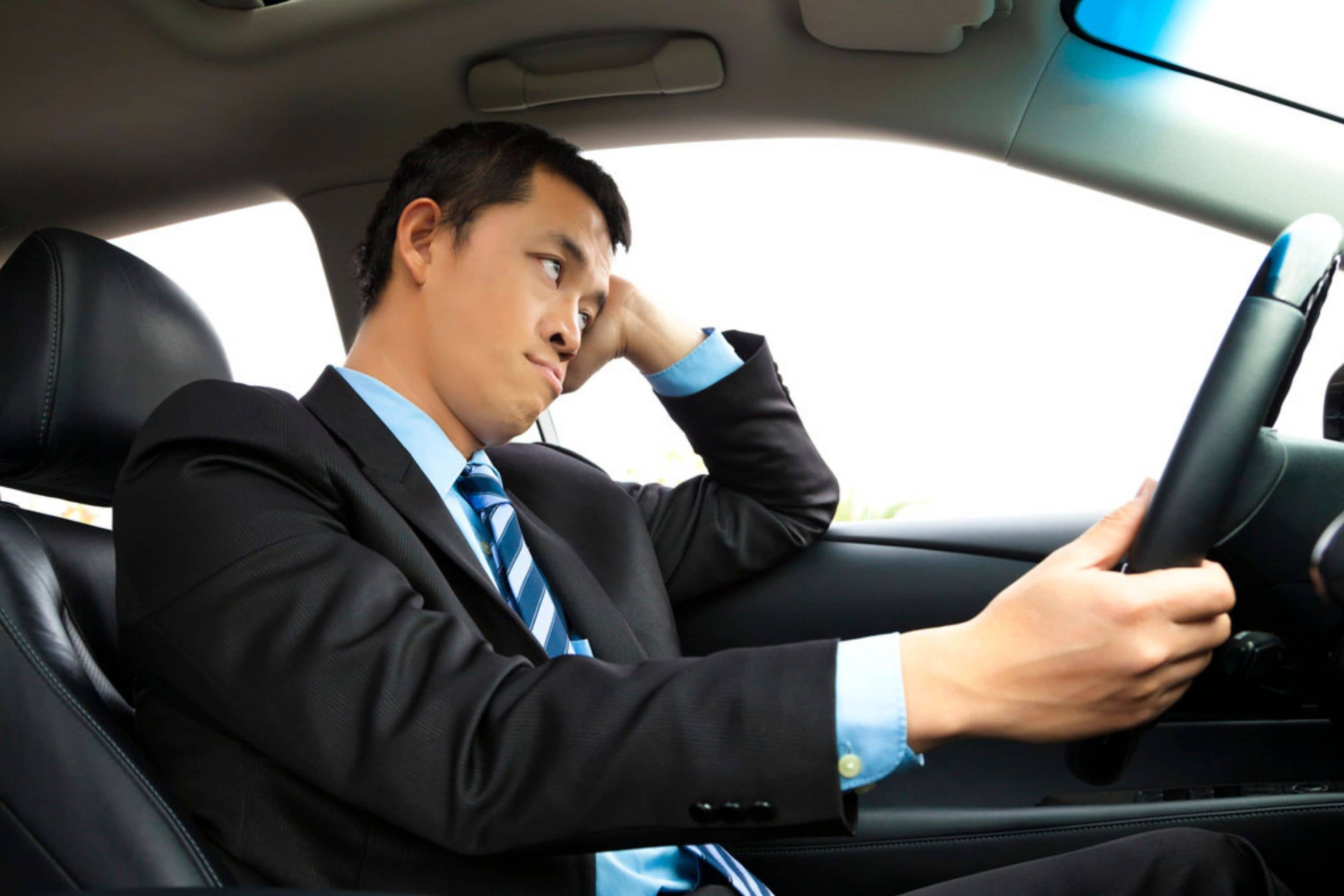
Why Fatigue Is Dangerous When You Are Driving?
Feeling fatigue while driving is dangerous, and we guess we don’t even have to explain why. However, we will do that just to remind you of the potential hazard.
The first reason is that driving while being tired increases your risk of causing or getting caught in a car accident significantly.
Many safety organizations like the National Safety Council (NSC) have found that driving while sleep-deprived can be just as dangerous as driving while intoxicated! Exhaustion affects your mind exactly as alcohol does.
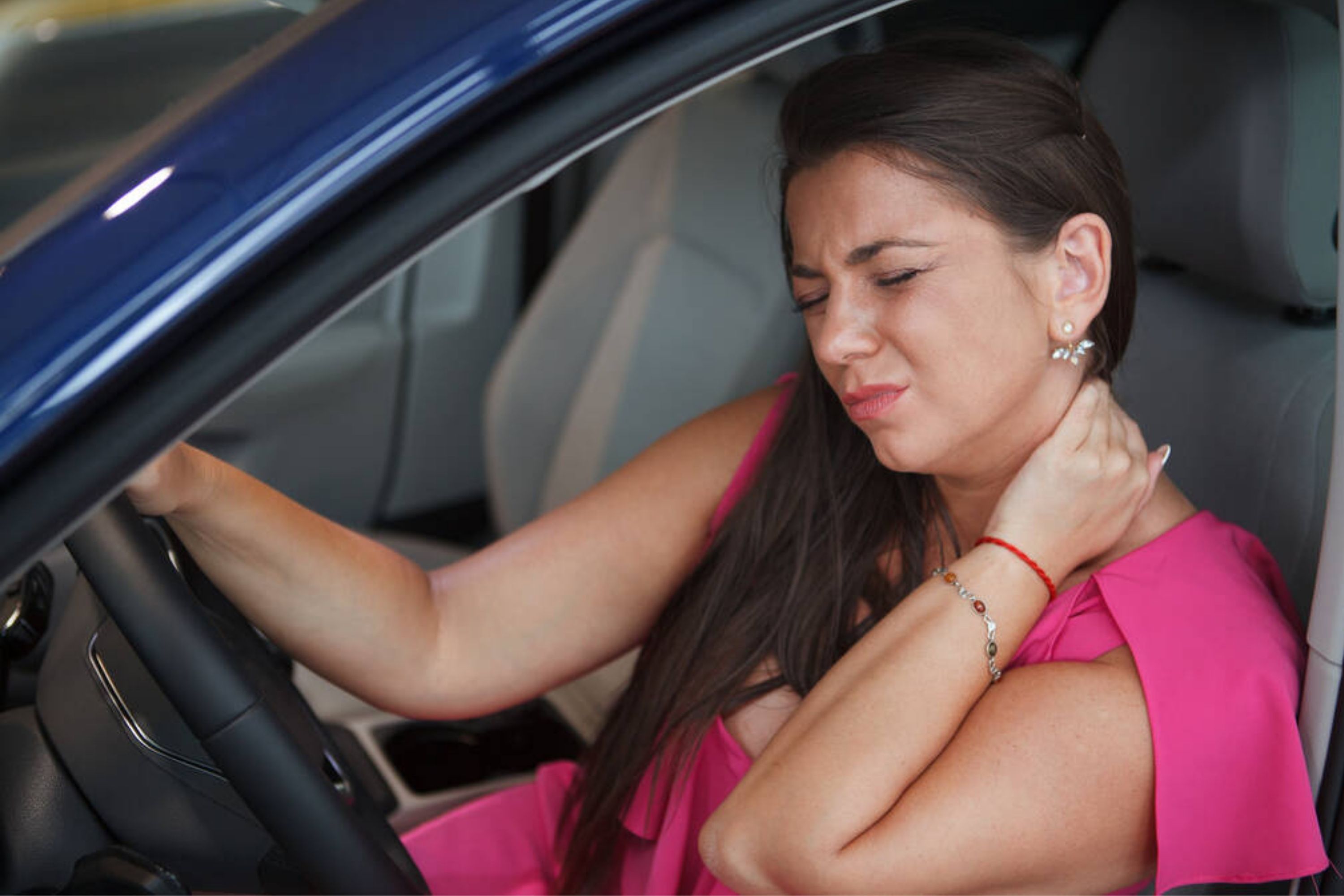
This is why, when you drive while fatigued, you run the risk of the following:
- Taking much longer to react to the world around you, possibly causing a rear-end accident at a stop sign or red-light intersection.
- Swerving in and out of your lane as you struggle to drive in a straight line.
- Exceeding the speed limit without realizing it due to mental fog.
- Falling asleep behind the wheel.
Keep in mind that you won’t be the only one on a road trip, either. Other drivers around you could likely be doing the same thing. They might be risking driving while exhausted, too.
[wp-faq-schema title=”Frequently Asked Questions”]

If I have nowhere to stop during the night drive (I mean, no motel, nothing) – is it OK to just stop my car at the roadside?
Honestly speaking, since I’m not a driver, I will hardly suggest anything useful. But I guess you can do that. To be sure, I guess you should check the road rules of the state/states you’ll be driving through.
Is it allowed to drink energy drinks while driving to stay awake? Did anyone try it? I’ll have to drive all night in a few days, but I know I’ll get sleepy pretty fast. So I thought that energy drinks might help.
Well, I personally never tried that option, but I guess they could help. Anyway, they contain no alcohol, just a horse-dose of caffeine, so it should be ok with the police.